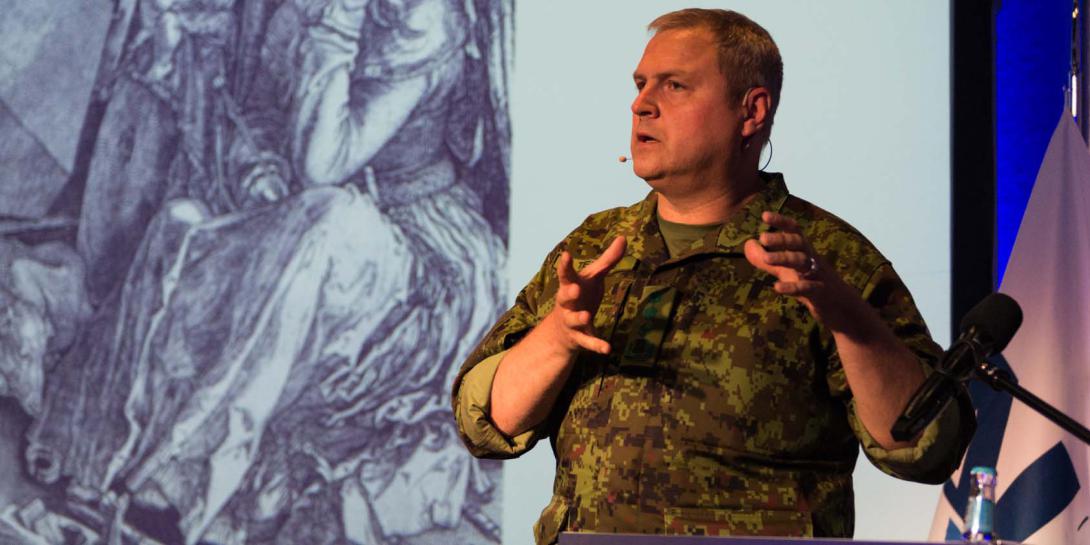NATO Needs a Wake Up Call, Estonian General Shares at NITEC 2016
Europe is asleep at the wheel and needs an awakening before it crashes, warned Lt. Gen. Riho Terras, commander of Estonian Defense Forces. The reactionary nature of the continent’s militaries has caught leaders unawares far too many times already, and forces no longer can afford to leave proactive measures to someone else, Gen. Terras shared at of NITEC 2016.
Europe is asleep at the wheel and needs an awakening before it crashes, warned Lt. Gen. Riho Terras, commander of Estonian Defense Forces.
The reactionary nature of the continent’s militaries has caught leaders unawares far too many times already, and forces no longer can afford to leave proactive measures to someone else, Gen. Terras shared during the inaugural day of NITEC 2016, a cyber conference being held this week in Tallinn, Estonia.
“What happens in the world comes as a surprise for Europe,” said Gen. Terras, who pulled no punches when laying out examples of when European leaders were caught off guard.
- The economic recession—surprise
- The Georgia war—big surprise
- Russian’s Crimean invasion—surprise
- Syria five years ago—surprise
- Syria today, with Russian involvement—surprise
“We’re reacting,” Gen. Terras said at the three-day conference, presented by the NATO Communication and Information (NCI) Agency and AFCEA Europe and organized in cooperation with the Estonian Ministry of Defense. “We’re not shaping the world. We need to pose the question why.”
NATO and its allies face fast-moving security challenges posed by a wide range of overt and covert military, paramilitary and civilian measures—making up a new environment of hybrid threats—used to disrupt, confuse, damage or coerce operations.
Today’s generation of youth undervalue a secure state and Gen. Terras said he fears these future leaders will not invest in defense. “What is important is the awakening call,” Gen. Terras shared. “We have to wake up in Europe, because in the current threat environment, we will not be able to survive.”
The situation in more complex than Russian aggression, he advised. There is a global complexity threatening security and taxing the United States and NATO—and their populations—which already suffer from what he called “Iraq and Afghanistan fatigue” and have lost the appetite for war.
“We need to think about the future for Libya, which is becoming a safe haven for terrorists,” he said as an example.
“We need to take our defense seriously, we need to pay for our needs … and governments needs to understand the need to pay for security is important.”
NATO too must learn to work better together rather than submit 28 plans for a single military platform, such as a helicopter.
“Unity is the center of gravity.”
Cooperation must take place among NATO nations, but also extend to European Union counties and beyond, echoed Spain’s Jorge Domecq, chief executive of the European Defense Agency.
Nations must quickly adapt policies, practices and technologies in order to act proactively rather than reactively, Domecq said. Better coordination is one solution, but avoiding unnecessary duplication of efforts, maximizing sparse resources and improving intelligence capabilities to build clearer pictures of emerging threats before they hit also are needed.





Comments